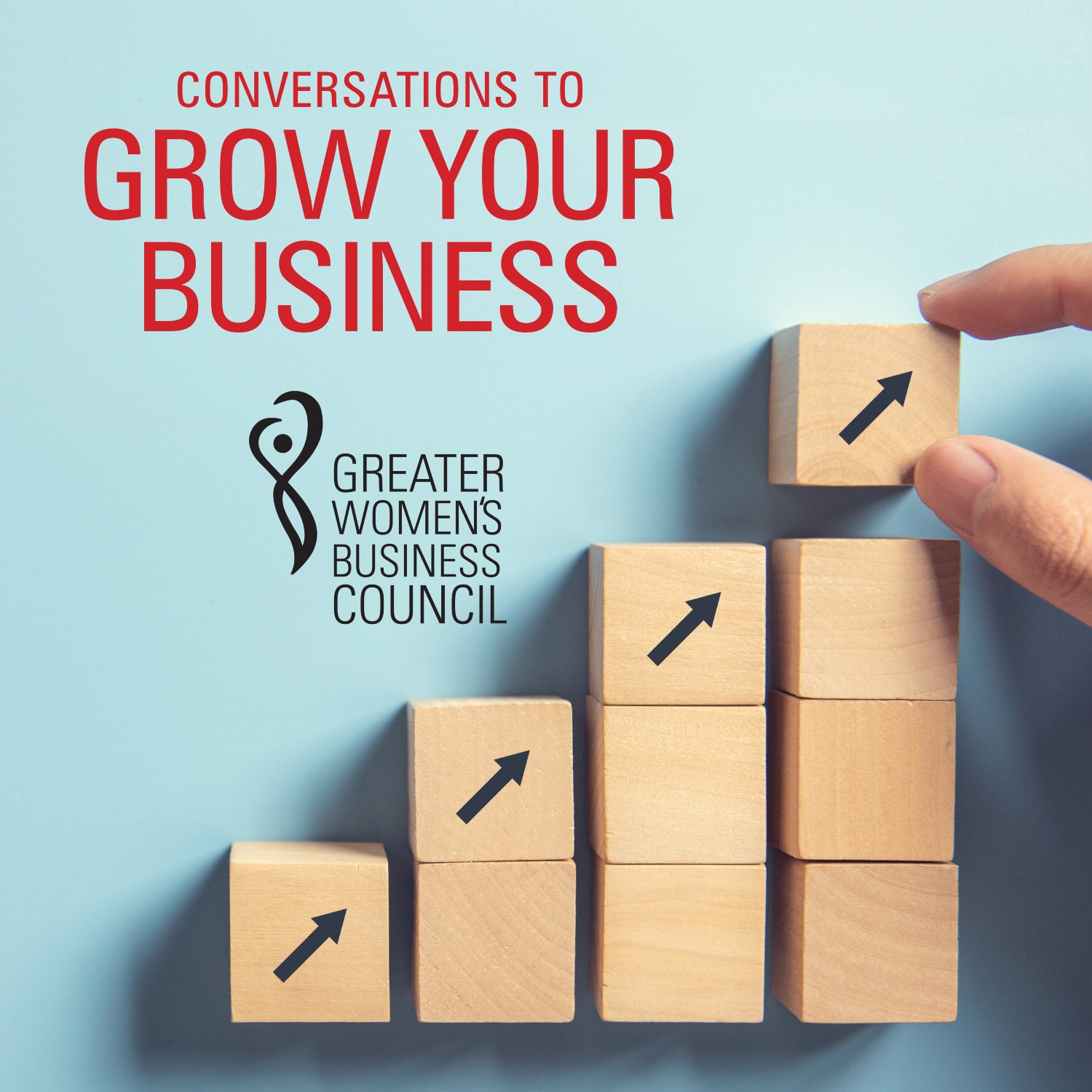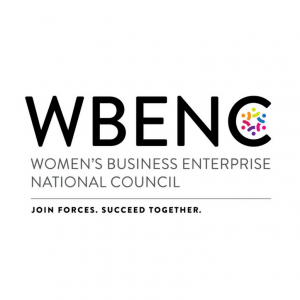
 Teresa Williams and Re’Nauta Bell, Cushman & Wakefield
Teresa Williams and Re’Nauta Bell, Cushman & Wakefield
TRANSCRIPT
Intro: [00:00:04] Broadcasting live from the Business RadioX studios in Atlanta, Georgia, it’s time for GWBC Radio’s Open for Business. Now, here’s your host.
Lee Kantor: [00:00:18] Lee Kantor here. Here we are live at WBENC’s National Conference and we’re inside the booth of GWBC, at booth 1812, if you want to come by and check us out. Right now, we have Re’Nauta Bell and Teresa Williams with Cushman Wakefield. Welcome, ladies.
Teresa Williams: [00:00:33] Thank you.
Re’Nauta Bell: [00:00:34] Thank you for having us.
Lee Kantor: [00:00:35] Well, I’m so excited. For the one person out there who doesn’t know about Cushman Wakefield, why don’t one of you give a little bit of an elevator pitch of how you’re serving folks?
Re’Nauta Bell: [00:00:44] We are a commercial real estate company and we are here to support the Greater Women’s Business Council with finding diverse vendors.
Lee Kantor: [00:00:53] And how did you guys get into this line of work? Were you always working in diversity or HR, or how did that come about?
Teresa Williams: [00:01:02] Well, I’ll dive in. I kind of fell into the industry. Maybe more appropriately, I think I kicked my way into the industry. I basically took a leap of faith. I sold my business and I decided that I wanted to do commercial real estate after being exposed to it. And I have had my husband set up some meetings for me and I basically crashed a couple of them, and this is where I landed. And it’s been a beautiful, beautiful experience. And I’m here today, because of an amazing woman, Kayla Dang, who is the CEO of GMI Group, who’s also a member of the Greater Women’s Business Council. So, so happy to be here.
Lee Kantor: [00:01:39] So, now, did you start in residential real estate and move to commercial or?
Teresa Williams: [00:01:44] So, actually, I started—I was in the residential sector, but on the finance side, so I was doing home mortgages, and then we ventured off into commercial mortgages, and that’s when things got interesting.
Lee Kantor: [00:01:57] It’s a different world, right?
Teresa Williams: [00:01:58] Yeah. Yeah. I really loved it. And it was just—it made sense to me. So, doing what I do today, representing occupiers who are looking for office space made a lot of sense.
Lee Kantor: [00:02:09] Now, in residential, a lot of women are involved in that. Is that the same in commercial or is that a more male-dominated industry?
Re’Nauta Bell: [00:02:18] Very, very good call out. It is at some point in time, so that’s why we would like to change that footprint, right? So, we’re here at this conference and we’re looking for diverse suppliers, not just women, but all genres, of course.
Lee Kantor: [00:02:33] Well, because it’s such an opportunity for folks. I would think that this is something that there’s a lot of people that if they would just open their mind to it and become aware of the opportunity, there would be a lot of people flocking to you.
Re’Nauta Bell: [00:02:44] Very much so. And actually, that’s why we’re here. So, with Cushman & Wakefield, we want to expand our diversity within all of our—sorry, with all of our business lines. So, if there are companies out there that do any type of roofing, electrical maintenance, anything within that building envelope, we need those suppliers.
Lee Kantor: [00:03:06] Right. And you have to become aware of them and they have to become aware of you. Now, it’s fascinating to me because people may not be aware of all the different kind of ways that Cushman Wakefield serves a market. Can you talk about, like you mentioned, some of the services, but there’s a whole plethora of services that address this market, right? It’s not the obvious ones. oh, I’m going to rent somebody’s space. There are lots of people that touch a building.
Re’Nauta Bell: [00:03:30] Like janitorial services. Move and change, so that’s like moving services. We also janitorial, already said that, landscape and snow removal. Anybody who does any HVAC, we have so many different categories and we need the diversity throughout. And it can even be a sub. They don’t have to be the first tier.
Lee Kantor: [00:03:57] So, any service that touches any of the work done in the building is somebody you want to get to know, right?
Re’Nauta Bell: [00:04:05] Exactly.
Teresa Williams: [00:04:06] Inside and outside the building.
Lee Kantor: [00:04:07] Right. It’s not just the person, like I said, that rents the space.
Re’Nauta Bell: [00:04:11] Exactly.
Lee Kantor: [00:04:12] And I think that people—I think some small businesses sell themselves short. They think too small. They’re not kind of expanding their mindset of, well, I do this one thing, but there’s lots and lots of people that might benefit from knowing that I do that.
Re’Nauta Bell: [00:04:26] Exactly. And I don’t know how this is going to be broadcast, but if they can find us as we’re walking through this conference today, what they can do is we’ll allow them, we’ll scan our barcode, and then they can go into our database.
Lee Kantor: [00:04:44] And so, they can add their name to a directory, so that-
Re’Nauta Bell: [00:04:46] Exactly.
Lee Kantor: [00:04:48] And then, let people know that Cushman Wakefield’s all over the place. There’s not just one office right there.
Re’Nauta Bell: [00:04:54] We’re national. We’re actually global.
Lee Kantor: [00:04:55] Global, right.
Teresa Williams: [00:04:56] Yes. We have over 450 employees. Shoot, I can’t remember how many offices we have, but we are located in 60 different countries. Actually, that was 450 offices, 53,000 employees, 60 countries.
Lee Kantor: [00:05:12] Yeah. So, you have—the world is really your oyster when it comes to this. And if I—like say I’m a janitorial service provider, and I partner with Cushman Wakefield, and say I’m in Minneapolis, is that something that, now, I’m in the database, so if somebody needs me in an adjoining market, they might call me as well, right?
Re’Nauta Bell: [00:05:31] They will search for that region, they’ll search for that service, and it’ll connect us to the right folks, the managers that lead that.
Lee Kantor: [00:05:39] Right. So, there’s really no reason not to put your name in the hat.
Re’Nauta Bell: [00:05:43] Exactly.
Teresa Williams: [00:05:44] It’s a great opportunity for you to expand your business as well. Say you serve just the Atlanta market, you’re interested in expanding, contracts can afford you that opportunities.
Lee Kantor: [00:05:54] Now, how do you attack an event like this WBENC National Conference? Are you just kind of walking around meeting people? Are you doing those kind of things?
Re’Nauta Bell: [00:06:04] Actually, we have clients here.
Teresa Williams: [00:06:04] Yeah, it’s very targeted.
Re’Nauta Bell: [00:06:06] Very targeted, right. So, it is speed dating. If someone sees our brand or our name on our-
Lee Kantor: [00:06:12] You want to meet people.
Re’Nauta Bell: [00:06:13] Exactly, we do, right? But we also have clients here that we are working with. And so, we’ll be at their booth and we’ll speak to people as they come up as well.
Lee Kantor: [00:06:23] Right. So, are you divide and conquer, or you are a team here?
Teresa Williams: [00:06:27] We divide, we conquer, we come back together, and then we do it all over again, so yeah.
Lee Kantor: [00:06:33] Now, it’s been a minute since these conferences have happened. Everything’s been virtual. How has that been for you to kind of go around? And I’m sure there’s been a lot more hugging today there’s been in probably months.
Re’Nauta Bell: [00:06:43] I know.
Teresa Williams: [00:06:44] Yeah. I saw some people I haven’t seen since before the pandemic, and it’s been a huge love fest, so I’m so happy to be here.
Lee Kantor: [00:06:52] Right. It’s like the world has opened up. It’s wild. So, if somebody wants to learn more about Cushman Wakefield, what’s the website, what’s the best coordinates to kind of learn about this program?
Teresa Williams: [00:07:03] You can reach us at www.cushmanwakefield.com.
Lee Kantor: [00:07:08] And then, kind of drill down to supplier diversity, where would they go in the website, do you know?
Re’Nauta Bell: [00:07:12] I would say supplier diversity or category management. That will lead you to our category managers for each category that I named earlier in the program, janitorial services.
Lee Kantor: [00:07:25] Right. So, you can put your information in the appropriate place?
Re’Nauta Bell: [00:07:29] Exactly.
Teresa Williams: [00:07:30] And we do have champions for our partners, so it’s not a situation where our partners sign up and-
Lee Kantor: [00:07:37] I know, forgotten, right?
Teresa Williams: [00:07:38] Exactly.
Lee Kantor: [00:07:38] There’s somebody on the team that’s going to come back behind there and really help them be successful.
Re’Nauta Bell: [00:07:43] Absolutely. Exactly.
Teresa Williams: [00:07:44] And that’s the whole point.
Lee Kantor: [00:07:46] Well, thank you both for sharing your story today. You’re doing important work and we appreciate you.
Teresa Williams: [00:07:50] Thank you.
Re’Nauta Bell: [00:07:50] Thank you for having us. We appreciate it.
Lee Kantor: [00:07:52] Alright. This is Lee Kantor. We’re broadcasting live from the WBENC National Conference 2022 inside the GWBC booth. We’ll be back in a few.
About WBENC
The Women’s Business Enterprise National Council (WBENC) is a leading non-profit organization dedicated to helping women-owned businesses thrive.
We believe diversity promotes innovation, opens doors, and creates partnerships that fuel the economy. That’s why we not only provide the most relied upon certification standard for women-owned businesses, but we also offer the tools to help them succeed.
About GWBC
The Greater Women’s Business Council (GWBC®) is at the forefront of redefining women business enterprises (WBEs). An increasing focus on supplier diversity means major corporations are viewing our WBEs as innovative, flexible and competitive solutions. The number of women-owned businesses is rising to reflect an increasingly diverse consumer base of women making a majority of buying decision for herself, her family and her business. 
GWBC® has partnered with dozens of major companies who are committed to providing a sustainable foundation through our guiding principles to bring education, training and the standardization of national certification to women businesses in Georgia, North Carolina and South Carolina.














